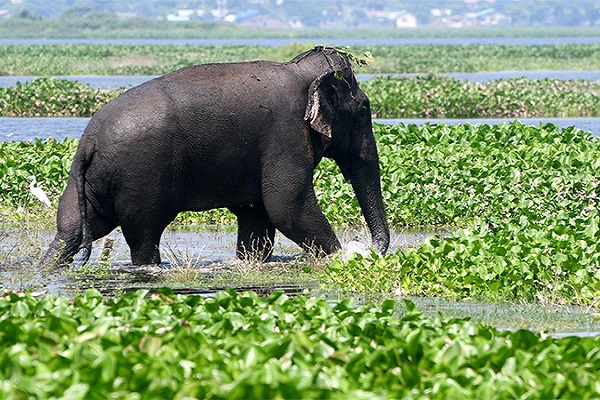
Guwahati: A novel approach has been adopted to ease the surging human-elephant conflict (HEC) in Assam, the state which harbours the world's second-largest Asian elephant population. In several conflict hotspots of the state- in districts of Udalguri, Baksa and Goalpara, a network of local communities has been formed called the Elephant Conservation Network (ECN).
The initiative was launched by Aaranyak, an organisation actively working to mitigate human-elephant conflicts for the benefit of human well-being as well as to aid in the conservation of Asian elephants.
"We have formed seven ECNs so far in HEC-affected villages of Assam involving village youths. Also, these youths were taught about elephant ecology and behaviour, effective mitigation measures that will help them manage conflict in their areas and facilitate coexistence," said Dr Bibhuti Prasad Lahkar, senior scientist at Aaranyak.
ECN members assist Aaranyak in monitoring and recording various HEC incidents, such as crop damage, property damage, and human and elephant deaths, on which the scientific research-oriented non-profit formulates and implements mitigation strategies. Additionally, they help the organisation in the distribution of mitigation tools, such as rechargeable spotlights to the affected villagers. With the formation of the ECNs, sending out messages about elephant movement near villages has become much more efficient.
In response to our warnings, the villagers take all necessary safety measures. Our coexistence with elephants is being improved by this, Says Dibakar Nayak, administrator of three ECNs namely- Samrang, Kunderbill and Volatar of Udalguri district.
Aaranyaks senior conservationist Dr. Alolika Sinha said, Members of ECNs also help us identify effective locations to install solar street lights which are fruitful in mitigating HEC. At present, 136 youth are engaged in the seven ECNs, with constant efforts being made to expand the network throughout other HEC-impacted areas.
ECN members act as Early Warning System by monitoring elephant movement and sending out alarms to the villagers. This unique initiative is supported by the U.S. Fish and Wildlife Service, USA. (ANI)







